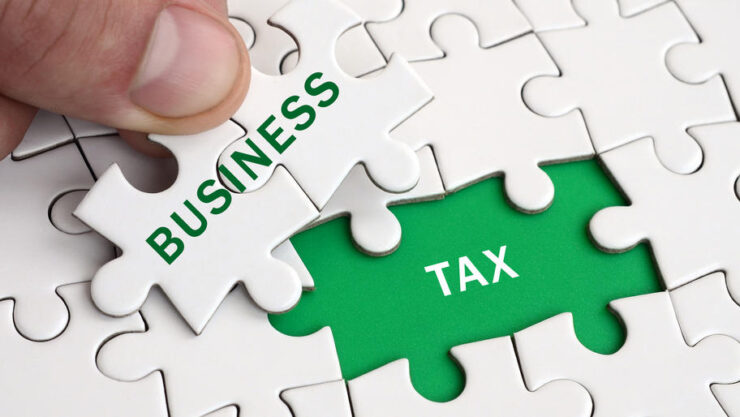Income tax for a business, or business tax, is also applicable in the Australian tax scenarios. These taxes are of two types: federal-directed or state-based. Some businesses have taxes specified to them, but usually, there are some general taxes that a business has to pay. Taxes also vary according to the size of your business. There are mainly 5 types of business taxes applied in the different trading institutions of Australia;
- Goods & Service Tax (GST)
- Fuel Tax Credits (FTC)
- Pay as You Go (PAYG)
- Payroll Tax
- Fringe Benefits Tax (FBT)
Relatedly, in 2017-18, income tax from companies and GST reached up to 20.9% and 15.6% respectively. Whether you are starting a business in Australia, or have already started one, you will have to register yourself with the Australian tax office (ATO). It is better to seek professional help from skilled and experienced tax agents to decide on your tax amount and the returns.
The different business taxes
As stated earlier, there are mainly 5 types of business taxes that a person needs to pay once his or her business has started. Let us know about these taxes a little more:
- Goods & Service Tax (GST): It applies to all the services and goods sold in Australia. The amount is one-eleventh of the sales price paid to ATO.
- Pay as You Go (PAYG): It is the withheld tax from all the payments to be made by an employer. It is also applicable to payments made to businesses other than the self-owned one.
- Payroll Tax: it is the tax an employer needs to pay on the salary he or she is paying to the employees per month. A threshold limit, varying over the states, exists; over which the employer needs to pay the tax. It applies to specific kinds of businesses.
- Fringe Benefits Tax (FBT): Fringe benefits are non-income-related bonuses paid by a company to its employees. The tax calculated on such benefits is known as FBT.
- Fuel Tax Credits (FTC): This is levied on businesses that use fuel for their functioning. For example, businesses with heavy vehicles, plants, machinery, and heavy-duty equipment.
To determine the proper amount of business tax and the proper ways to obtain the deserved business tax return, it is advisable to consult with a knowledgeable tax accountant.
Few things to know
The tax liabilities of the different sectors are instrumental in providing significant financial returns to the Australian government. In this context, there is certain information to be considered by the taxpayer before submitting the returns to ATO. Although these factors are already known and considered by the tax agent in Perth, still their knowledge will help in submitting a proper return;
- Tax File Number (TFN): A Tax file number or TFN is an identifying number issued by the ATO for organizations and individuals to manage tax services with the government. In the case of functioning ownership, trust, or company, the businesses will require a separate TFN for each of them.
- Australian Business Number (ABN): An ABN will be required for a company to function as a legally registered business entity in Australia’s financial structure. An ABN will provide the concern with the following benefits:
- Qualification for application of GST
- Identify the business to other parties
- Circumvent PAYG tax on all the expenses you are going to receive
- Assert GST credits
- Obtain energy credits
- Obtain an Australian domain name.
Reducing business tax and maximizing return
Businessmen will always look out for some way to minimize the amount of tax they have to pay, consequently increasing their profits. However, it must be remembered that tax-avoiding is legal in Australia but tax evasion isn’t. So, here are some ways by which you can minimize your tax and maximize return;
- Check whether your business falls under the “Small Business” entity, which means your aggregate turnover (annual turnover of yours plus the annual turnover of businesses connected with you) is less than AUD 10 million, and the business functions for the total or part of the financial year.
- Australian tax law charges 27.5% from businesses with an annual turnover of less than AUD 50 million, if 80% or less of the assessable income falls under “passive income” (interest dividends, rent, royalties, and net capital gains). The company, however, has to qualify as a base rate entity.
- Maximize the deductible superannuation contributions. The concessional superannuation limit is AUD 25000 for all individuals, above which more tax has to be paid. To be counted in that year’s contribution cap, it must be received by 30th June.
- Purchasing tools or equipment that provides FBT exemption for employees and owners can be an effective way of reducing tax. Packaged items like transportable tools of occupation, personal electronic organizers, digital cameras, computer software, briefcases, protective clothing notebook computers, and mobile phones fall under this category. Presented properly, the employer will be allowed a tax deduction for the compensation to the employee and can claim any GST input credit.
- Pay the employee superannuation to the super fund or Small Business Superannuation Clearing House (SBSCH) by 30 June to claim a tax deduction. Avoid deferring it as paying it last minute can cause them to be received after year-end due to delays in processing.
- A good way to minimize taxes and maximize return is to defer income into the following year and bring the expenses forward to the ongoing year. Eventually, you will have to pay the taxes, but you can save money for the time being and use them as needed.
- Make any payments for repairs and maintenance of your rental property, business, and establishment before 30th June.
- “Small Business Concession” taxpayers can obtain a full tax deduction in the current financial year by making prepayments (up to 12 months) on loan interest, rent, and subscriptions before 30 June.
Taking professional help
It is evident that for business owners without the knowledge and skill related to business tax laws, the job of filing a business tax return can become complex. So, it is better to seek professional assistance from experienced tax agent Perth for a stress-free filing.




























